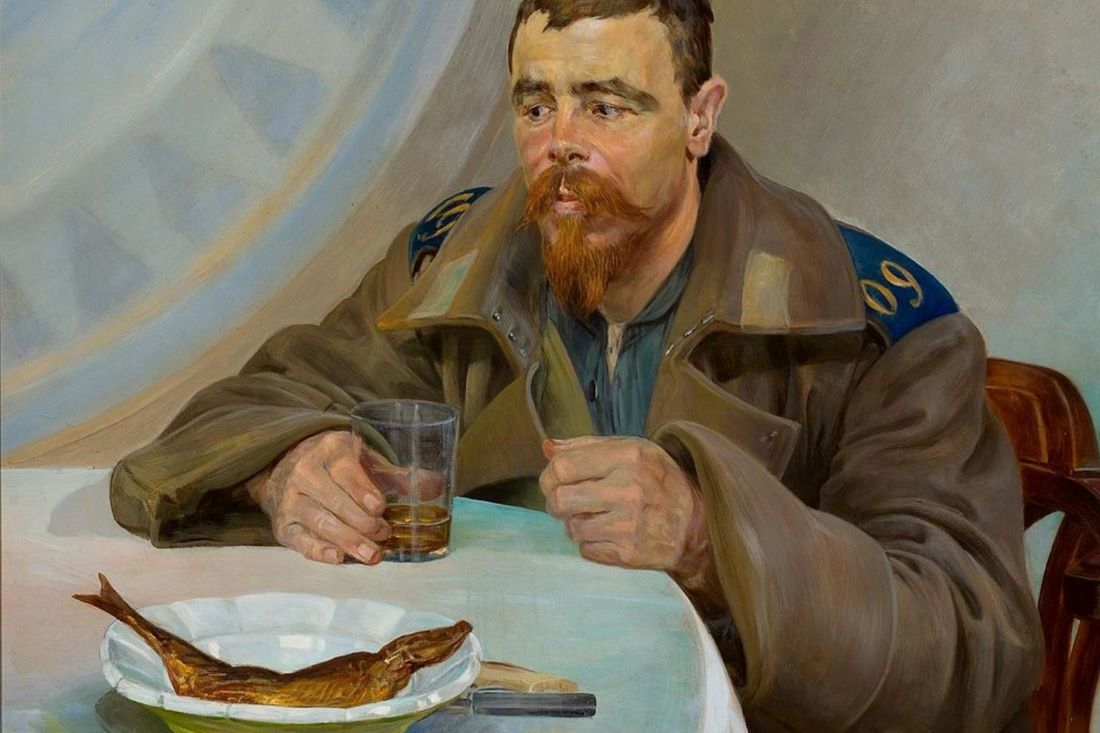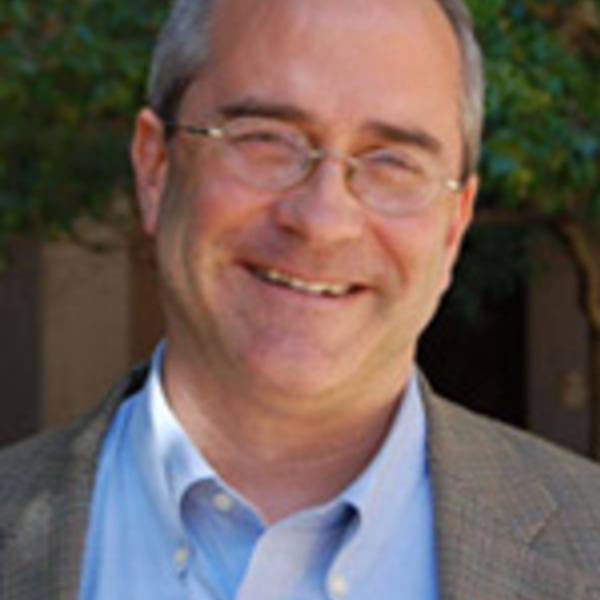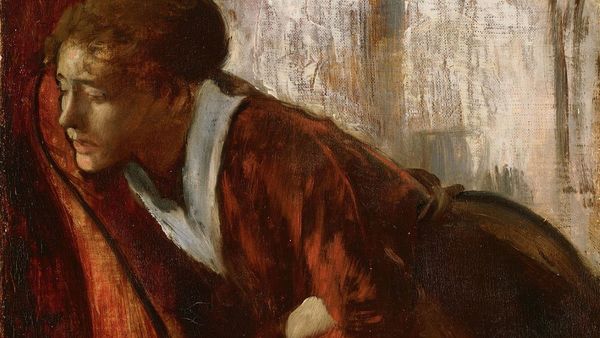This essay is about two men: Jean Vanier, the founder of L’Arche, and Franz Jägerstätter, the Austrian farmer-martyr. Each of them lived a hidden life.
I do not want to dwell too much on Jean Vanier’s hidden life. It has come to light that, for many years, he sexually, psychologically, and spiritually abused many women. This life was hidden from the world that looked with such admiration on both him and L’Arche. We have grown too accustomed to this hidden abuse coming to light in those we thought were leaders in the Church. It still shocks, but no longer surprises. It is awful.
In the midst of our anguish over Vanier’s abusive behavior, we need to keep in mind that nonetheless Vanier stated a profound truth: persons with disabilities are not objects of our charity but should be treated as friends among whom we live and share a common life. The irony of the L’Arche communities is that they exist at all, for if we all took that profound truth to heart, if we lived it, there would be no L’Arche, or rather we would all be L’Arche in our homes, neighborhoods, towns, and cities. Jean Vanier’s hidden life cannot destroy that truth.
It is, however, worth nothing that the profound damage of Vanier’s hidden life goes beyond the women he abused so terribly. It affects families like mine who have children with disabilities, families who had admired Vanier for the life he appeared to lead, even the appearance of sanctity in that life. Those families had looked to him as a model and light in what can be a very dark world for our children. It also affects the L’Arche community, which for all the good it continues to do and will do, will also now live under the cloud of association with its founder. One wonders if Vanier ever considered the damage that L’Arche would suffer if his hidden life came to light.
However, next to the women he abused, perhaps his hidden life most profoundly affects the persons whom Vanier called friends, the “core members” of the community living with some form of disability. There appears to be no evidence that he ever sexually abused any core members of the community. However, one has to believe that his hidden life was an abuse of their friendship. At least some of the women he abused were nuns and others who worked in L’Arche and were presumably known to, even likely friends of, many of the core members that Vanier called his friends.
Had they known of his hidden life, what would they have thought of the abuse of these women they also knew as friends? Would they have continued to think of Vanier as their friend? Moreover, to what extent did the appearance of sanctity in his friendship with his disabled friends make it all that much easier for those whom he did abuse sexually to trust him in their vulnerability? Even if he did not abuse these core members sexually, his abuse of the women who worked with the members was in its own way a use and an abuse of them and their friendship for him.
Though Vanier was not a priest, a lesson we learned from the priest sex abuse scandal is that it was, among other things, the abuse of the respect we give to the priesthood that made it possible for the abusers to take advantage of the trust of the vulnerable. How was Vanier’s abuse of friendship for the members of the L’Arche community different from that abuse of trust in the priest sexual scandal? On top of the abuse itself, it is a sacrilege and blasphemy in both cases.
Franz Jägerstätter also lived a hidden life. A Hidden Life is the title of the Terrence Malick film about Jägerstätter that came out recently. It is a beautiful film based upon his letters from prison. Jägerstätter was beatified in 2007 as a martyred witness to the faith for following his conscience when he refused as a conscript in the Austrian army to swear an oath of loyalty to Adolf Hitler. Because of the role of his conscience in his martyrdom, many are likely to think the phrase “A Hidden Life” in the title refers to Jägerstätter’s inner spiritual life, a life hidden from us.
We often hear conscience spoken of metaphorically as the voice of God speaking to us from within the inner sanctum of our hearts or minds. Provided we do not have bad consciences, it is a harmless metaphor, since presumably a bad conscience is not the voice of God speaking from within or without. It can also be an unfortunate metaphor, however, insofar as it tempts us to think of conscience as a hidden thing, a hidden life known only to oneself. That is a mistake.
There is nothing naturally hidden about one’s conscience. One’s conscience is expressed in and made manifest by one’s actions. When you see what I do, you see what in my conscience I have judged to be right, just as when you hear me speak, you hear what I intend to say. Of course one can try to hide one’s conscience just as one can try to hide what one is doing. One tries to hide one’s conscience because it is a bad conscience. Often an aspect of sin is its hiddenness, not hidden within the privacy of the mind, but hidden disguising what one is actually doing in the world.
We all often do this when we sin, attempt to keep the deed from being known. That is why we are ashamed of our sins when what we really did comes to light, as opposed to what we deceptively appeared to do. A lie is something hidden, not in the mind, but in the speech. We also lie by our actions. Jean Vanier’s conscience was not hidden in the recesses of his mind; it was hidden in plain sight by what he did and what he appeared to do.
So Malick’s film is not about the hiddenness of Franz Jägerstätter’s inner spiritual life or depth of conscience, held secret from those around him and from us. The title of the film comes from the last lines of George Eliot’s novel Middlemarch:
For the growing good of the world is partly dependent on unhistoric acts; and that things are not so ill with you and me as they might have been, is half owing to the number who lived faithfully a hidden life, and rest in unvisited tombs.
That passage does not speak of an unknown hidden mental life. It speaks of actions that are done by others that have made our lives better than they otherwise would be. They are hidden only insofar as they are not recorded in history. We do not know or much think about how much our lives are shaped, not by the great deeds of great men and women recorded in history books, but by ordinary men and women living “faithfully” who “rest in unvisited tombs.”
This passage makes it clear that the title of the film is partly ironic. A recurring theme of the film involves various people—friends, Nazi officials, soldiers—saying to Franz, “What you do will change nothing. Mean nothing. No one will ever know of what you do.” But we do know of Franz Jägerstätter for what he did. His particular martyrdom may or may not have brought an earlier end to the Nazi regime; probably it did not. But the quotation from Middlemarch suggests it may have made things better in the world in ways we do not and cannot know.
Moved by his faith in Christ, Jägerstätter did not take an oath of fidelity to Hitler, and he was martyred for it. What he did is not “unhistoric.” He now stands as a witness to the faith among those who have been tested by fire. Even in his own time there was no hiddenness about what he did; everyone he knew knew what he planned on doing, his family, his friends, the townspeople, the local priest, the bishop. Many tried to dissuade him; others, like his wife Franziska, tried to understand. When he did give up his life, they all knew as the village church bell tolled his death. Everyone in the village, whom we have seen throughout the film, is shown hanging their heads at the sound of the bells as if praying the Angelus, even those who had opposed him for what he plainly intended to do. His conscience was right there for all to see.
But I think the irony of the title goes further. When we look at Franz Jägerstätter as a martyr, what is hidden from us? One of the things that struck me about A Hidden Life was the amount of time spent portraying Jägerstätter’s ordinary life in his village among his family and friends. He is the church sexton who rings the Angelus bell. He brings in the harvest with the other farmers. He drinks beer in the village square with his friends. He plays with his children. Takes care of his sister-in-law and mother. Loves and is loved by Franziska. The construction of the cinematography of various scenes reminds one vaguely of famous paintings of domestic life that one cannot quite remember where or when one saw them. One striking moment, when Franziska pauses in the fields to pray the Angelus, looks like the famous painting of the same by Jean-Francois Millet, except that she is praying alone because Franz has been taken away.
Increasingly in the midst of all this, the question of Jägerstätter’s conscription and the oath to Hitler intrudes. But even then Malick returns again and again to scenes of familial and social life. This was Franz’s ordinary life, the good life of a good man in the Austrian mountains, a life by and large hidden from the world beyond those mountains, a life that would be one of Eliot’s hidden lives, but for his martyrdom. What Malick portrays in that hidden life is that Jägerstätter was capable of the holiness of his martyrdom because he was already living an integrally holy life at home with his family, friends, and community.
He was not a saint because of the sacrifice he made of his life following his conscience in the face of Hitler. He was already a saint in his ordinary life, at home hidden from the world, following and showing his good conscience in the way he treated his wife, his children, his friends in the town, his work. Living holiness day by day. Martyrdom did not make him a saint; he was prepared by the ordinary holiness of his daily life for the extraordinary holiness of martyrdom. He was already a saint, in his hidden “unhistoric” life.
In one extraordinary scene, Franziska, who had struggled with him over his decision, takes his hands and says, “whatever happens, I will be with you always.” She says this the last time she seems Franz, visiting him in prison, and his face opens up in an expression of fearless joy toward her, as if his last concern, the last concern troubling his conscience had been washed away by her love. She is of course quoting the last lines of Matthew’s Gospel, when Christ commissions his disciples to go out into the world:
Go, therefore, and make disciples of all nations, baptizing them in the name of the Father, and of the Son, and of the holy Spirit, teaching them to observe all that I have commanded you. And behold, I am with you always, until the end of the age (28:20).
Her ability to say these words of Christ to him, despite her struggle to understand his decision, is enabled by the fact that Christ is at the center of their hidden unhistoric life together, making it an integrally holy life. In fact, so much time in the film is spent on their married life together and their exchanges as quoted from the letters that one begins to think the film is as much about their marriage as his martyrdom. Late in the film, Franz’s mother says to Franziska, “you changed him.” It is clear that what she means by that statement is that she changed Franz in such a way the she is responsible for the fact that he could what he is about to do, offer his life for the truth.
The portrait of their life together gives reality and depth to that heartbreakingly beautiful scene when she quotes Matthew to him; just as he could do no other than offer his life to Christ, she, echoing the words of Christ, could do no other than offer her life to him, “whatever happens,” as she had been doing throughout their marriage.
By focusing so minutely and carefully on their ordinary holiness of life, rather than solely on his martyrdom, the film points out a further irony. We look to the martyrs as heroic precisely because of the martyrdom. But what led the martyrs to their martyrdom? We can be blinded by our need for heroes, blinded by the particular heroism of martyrdom; fascinated by it, the rest of the martyrs’ lives remain hidden to us by our own lack of interest, our narrowness of vision, like the way our desire for stunning miracles can obscure from us the ubiquitous and ordinary but just as holy ways of God’s providence.
If the Church canonizes and so proclaims a saint to us in order to provide objects of admiration and thus models of holiness for us to emulate, then it is really a kind of cheap grace for someone like me to admire Jägerstätter’s martyrdom; I cannot connect with him at all in his martyrdom, except hypothetically—well, if I am ever in that situation, I pray I will do what he did. Right, if I am ever in that situation . . . But what the film shows is that his martyrdom was the fruit of the holiness of his ordinary hidden life. And that is a portrait of the life of a man I can connect with, a life I can seek to emulate—a man at home with his wife, children, friends, a job, living a life that is hidden, “unhistorical,” but holy.
That hidden life was not a conscience hidden from the world around him. It was the life of a conscience as clear and bright as a cloudless day, alive in its impact upon the lives of those around him. For me to emulate that hidden life would not be cheap grace. And maybe, just maybe, it would not then be cheap grace for me to pray, if I am ever confronted with a situation as bad as he was, however unlikely that is, that I could emulate his martyrdom, because I have already emulated the holiness of his hidden life. "If you found out you were going to die in fifteen minutes, what would you do?" "Same thing I have been doing." The Little Way, day by day.
We all live hidden, “unhistoric” lives, lives hidden from the world, yet lives that change the world around us for good or ill in untold unknown ways. We have a choice—to live a hidden life of deceit or of integral holiness. Nothing is hidden from God, nor even man entirely.


